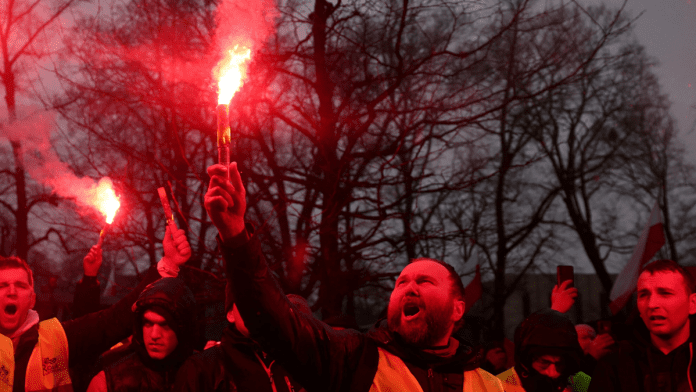News in brief:
– Polish farmers in Dorohusk protest against EU policies allowing Ukrainian agricultural products into the market without customs fees.
– Authorities from Warsaw and Kyiv engage with protesters, highlighting the challenges of balancing international support and local agricultural interests.
In a response to Brussels allowing Ukrainian farmers to sell their produce in the EU without customs fees, farmers in Dorohusk, southeastern Poland, are taking a stand against what they perceive as unfair competition affecting their livelihoods.
Situated merely four kilometers from the Ukrainian border, Dorohusk has become a focal point for Polish farmers’ protests. In a strategic move, they have blocked access to checkpoints, restricting the influx of cheap Ukrainian grain, milk, and other agricultural products.
Protester Pawel Ilasz explained, “we only let one car through every hour, plus humanitarian aid. Fertilizers are expensive in our country, and wheat prices are dropping consistently. Everyone here has a family, everyone has children.”
To address the concerns of the protesting farmers, officials from Warsaw and Kyiv engaged with the demonstrators. Poland’s Deputy Minister of Infrastructure, PaweÅ Gancarz, stated, “today, we concentrated on checking border controls, agreeing on small arrangements to regulate traffic.”
Ukraine’s Minister of Infrastructure, Serhiy Derkacz, emphasised the broader implications, stating, “blocking the border poses economic and social challenges in Ukraine. It is crucial to keep the border open, especially amid Russia’s ongoing conflict in Ukraine.”
The clash highlights the delicate balance between supporting neighboring countries in times of crisis and safeguarding local agricultural interests. The situation in Dorohusk underscores the impact of international decisions on the everyday lives of local farmers, who grapple with the consequences of global geopolitical shifts.



